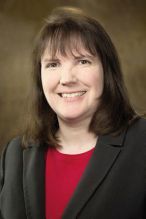As the parents of twins, my husband and I have navigated multiple diagnoses for our children over the years, including: SPD, APD, OCD, anxiety, ADHD, and the most enigmatic, PANDAS (a type of autoimmune encephalitis that can cause both physical and neuropsychiatric symptoms). I could not imagine surviving physically and emotionally without the support we had from grandparents and a handful of friends, as well as some community groups. Still, there were many times when we needed more support, but didn't tell anyone. We couldn't imagine that they would understand.
Kimberly Eallonardo has a daughter with kidney and autoimmune disease, and another with multiple diagnoses including autism. On social media, she writes, “Unless you live it, breathe it, tend to it day in and day out, hour after hour, second after second, individuals are blissfully unaware of the complexity and difficulty of a special needs parent’s life. They are blissfully unaware of the isolation, the broken heart, the mental effort, and the sleepless nights.”
Annie Parsons Camacho's experience is similar. She is mom to three children, two of whom have been diagnosed with PANDAS. "My children were diagnosed at the ages of 15 and 12, about a year apart. Initially, we had zero support. Our family and friends just didn't understand. There isn't enough awareness about PANDAS, even in the medical field, and it made it impossible for people to understand what we were dealing with."
This theme is echoed by another parent of children with disabilities, Sarah Norwood, who writes, “I grew up with a close group of friends and they have not been supportive. It’s almost as if they don’t realize the severity."
That's very likely. Whether the issue is autism, PANDAS, ADHD, or a physical disability such as cerebral palsy, friends and family members often don't know how to help. And many parents can be hesitant to explain what help they need.
Camancho began by seeking out support groups, both online and in-person. Those interactions helped her realize that if she wanted significant help when returning to work after family leave, she would need to ask for it, and be very specific.
“I knew I had to ask for help,” she recalls. “I sent a message to our parents and siblings. I was direct about what we needed. We needed meals, someone to stay with our son doing homebound instruction. I was going to need help with the housework, all of it. I knew if I didn’t ask, I wouldn’t get what I needed. Everyone immediately jumped into action! We created a schedule that we could all share and it is working wonderfully. Although our journey isn’t over, we are doing much better. My biggest advice to other parents is this: don’t be afraid to ask for help. People want to help, they just don’t always know how.”
Unless you live it, breathe it, tend to it day in and day out, hour after hour, second after second, individuals are blissfully unaware of the complexity and difficulty of a special needs parent’s life.
Our experience with our children's grandparents bears this out. While we could have asked for more help than we did, when we made specific requests, they were usually happy to help. They would feed, pick up from school, or entertain one child, or both. They had limited energy, but they did help us periodically to take a break, finish work, or keep our own doctor or dentist appointment.
Not everyone has extended family members nearby, or ones who are able to help. Another parent of children with disabilities, Sarah Marie, puts it succinctly: “Families like mine need support: emotional, physical, and mental.” The care of children with disabilities, whether visible or invisible, can be exhausting.
Community organizations, patient outreach programs, and religious groups can provide some support for weary parents. When our children were little, the YMCA, a local children’s gym, and various churches offered parent’s night out programs. Some were free, some were not. Others offered movie nights for kids on the weekends, craft classes, musical activities and more. While not all such programs are set up for children with special needs, many will accommodate if made aware of the situation. If your child’s needs can’t be met by any existing programs you know of, your local health care provider or advocacy organization may be able to help.
Other parents in your area can serve as great resources also. If you don’t have time to meet in person, a Facebook search will reveal parent groups for almost every disability and/or childhood condition, and many are local to specific cities, states, or countries. Parents can exchange information on community support, doctors, therapists and treatments.
Caring for multiple children with disabilities can be isolating. It can be hard to make friends when you are in a constant state of crisis. But even online friends can help ease that feeling of isolation. Parent groups on social media can connect parents in a way that helps them feel supported. Telehealth options may help you squeeze in an appointment with a therapist who can help you cope with stress.
When friends and family ask how you are and what you need, consider answering openly, honestly and in detail. Confiding in others can be difficult, but many times when people ask, they actually want to know. And the more they know, the more they can help.•
TWIN CHALLENGES: "As the parents of twins with multiple diagnoses, there were many times when we needed more support, but didn't tell anyone. We couldn't imagine that they would understand."
ABOUT THE AUTHOR:

Kara Jolliff Gould, Ph.D. is Assistant Professor of Journalism, School of Journalism and Strategic Media, University of Arkansas in Fayetteville, AR. She and her husband are parents of two young adults.